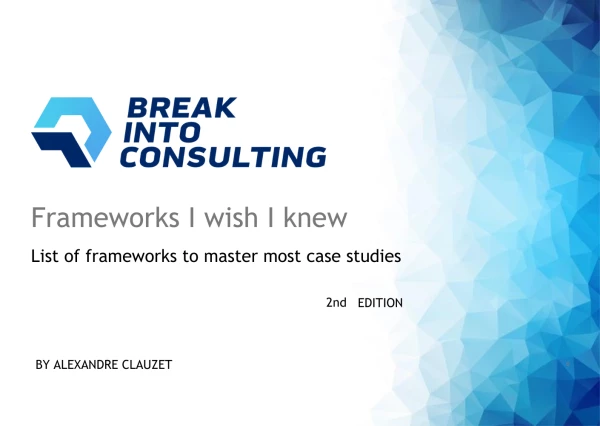Hey Everyone!
I recently changed my approach when it comes to structuring to be less generic (not fitting Case in Point or Victor Cheng structures any more!). I am being much more problem-oriented and more creative in the dimensions of my structure. Shout out to the 'Crafting Cases' gents on that!
I have new issues to work on now:
1) My structures are too detailed/ deep and come out as confusing (to both myself and my mock-interview partners). This is mainly because I want to analyze A LOT of relevant (maybe not-so relevant) items in the case. It is just not coming out as smooth.
2) It is taking me much more time to come up with the components of structure (3mins +)
3) That ‘fear’ factor is creeping back up during the mock interviews because the structure isn't 'perfect'
Problem in Brief: I feel now I am ‘boiling the ocean’; not a trait most firms are looking for when they are hiring prospective consultants.
Potential causes:
1)Not prioritizing my hypotheses during the case.
2) Not fully understanding the SCOPE of the problem AND/OR not knowing which hypothesis/ components to use; panicking and resorting to using relevant yet not the 'right' components.
3) Not being ‘creative’ enough - Not sure about this; could be giving in to my negative self-talk at the moment (lol)
My plan of action: Practicing structuring drills on myself (timing/ recording myself). I need to trust the process.
However I don't have much time for my interviews and I am worried I might not perform well.
What should I do? Horrible experience with some coaches (exorbitant fees for not any additional value)














